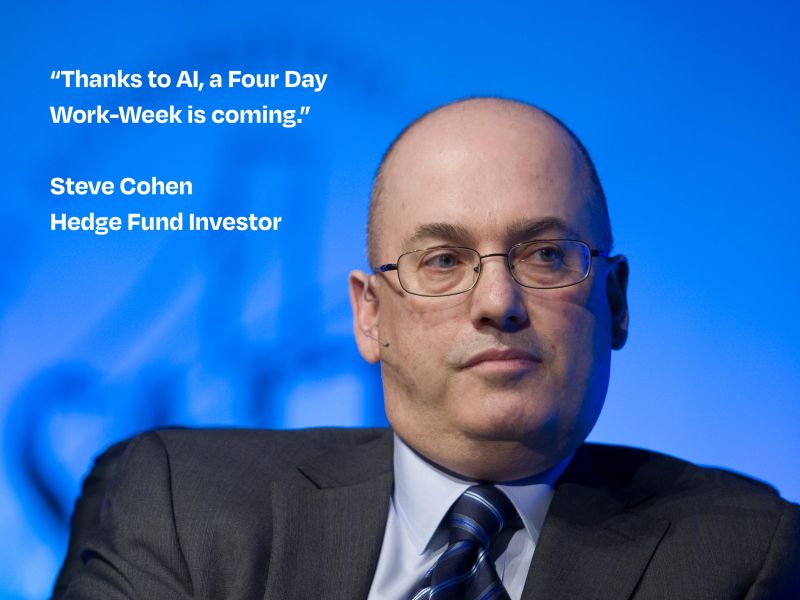Is the 4 day work-week our inevitable future?
Steve Cohen, billionaire hedge fund manager and owner of NY Mets, envisions a seismic shift in our work-life balance— driven partly by AI, leading us to a four-day work week.
Here’s what’s unfolding:
1. AI’s Role in Efficiency: The adoption of AI is already driving workplace productivity, potentially reducing the need for the traditional five-day grind.
2. Fridays Falling Behind: Data suggests productivity dips on Fridays, bolstering the case for a condensed work week.
3. Investment with Vision: Cohen’s investment in the high-tech golf league TGL hints at the future he anticipates, where increased leisure becomes a societal norm.
4. Sports and Leisure Surge: With more time, Cohen foresees a boom in leisure activities like golf, suggesting significant lifestyle and economic impacts.
5. Market Realities: While the financial markets may not adopt a shorter work week immediately, the broader implication points towards increased leisure time for many.
Cohen’s prediction isn’t just a forecast; it’s a reminder of the changing tides in work culture. As AI reshapes industries, it could also redefine our definitions of work and leisure.
Do you think a four-day work week is about to happen? how might it change your industry?
#FutureOfWork #AI #Productivity #WorkLifeBalance #SteveCohen #FourDayWorkWeek

